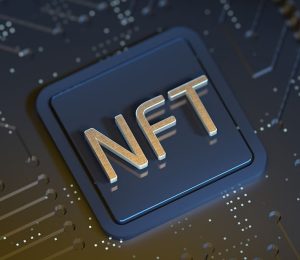NFTs. What is the deal with that? Whether it’s cutting-edge HTML5 game engines or sophisticated systems powered by the blockchain, casinos are often some of the first to adopt the hottest and latest gaming tech. That being said, nothing in the digital realm has conjured quite as much excitement, debate, and the potential to disrupt the industry as much as NFTs, aka non-fungible tokens.
A few years ago, NFTs were seen as a mere gimmick to appeal to the savviness of crypto users and collectors looking for the next big money-makers to sink their investments into. However, they’ve proved to hold a lot more potential than everyone initially thought. Especially where next-generation online slot machines are concerned.
But just how valuable are NFTs? And what’s the crack with ownership rights, promotions, and staking in the world of casino gaming? We’ve unpacked these questions and condensed everything you need to know about NFTs in online gambling in this article.
Let’s break it down:
What Is NFT Staking?
“NFT staking” is the act of betting an NFT at an online casino or similar digital platform in order to claim rewards. It’s essentially classed as a loyalty deposit, which enables you to qualify for perks in exchange for pledging your NFT to a casino or game. Some of the kinds of perks you can expect to qualify for include:
- Daily or weekly token payouts
- Tailor-made in-game features and experiences
- Higher return to player (RTP) percentages and reward potential
- Custom skins or reels
- Entry into special tournaments or jackpots
Utilization is the key with this approach. Rather than allowing your NFTs to lie dormant in your wallet, they can instead be used to actively empower your gameplay, which in turn, can have a massive influence on what rewards you reap in the world of online slots.
NFTs and the Role They Play in Next-Gen Online Slots
Back in the day, slots relied on levers, pulleys, and traditional mechanics to power them. A player would hit the spin button, then sit back and hope that jackpot-triggering symbols would emerge onto the reels. However, the industry has evolved tenfold since then. Slots now offer a much more immersive edge. Throw NFTs into the mix, and you’ve got next-level slot dynamics and interaction that supercede traditional gameplay.
Here are three potential uses of NFTs in future slot environments:
1. Staking for Enhanced RTP or Bonus Access
Picture yourself being the owner of a shiny, one-of-a-kind NFT that’s connected to your favorite online slot. You might feel hesitant at wagering such a prized digital asset at first. But doing so could see you not only benefit from higher RTPs (return to player percentage) in slots, but also automatic entry into VIP-only jackpot pools and exclusive bonus rounds. This is all as a result of the link between your NFT and the in-game prizes offered by next-gen slots. And that’s something their traditional counterparts have and are unlikely to ever offer.
Online casinos also benefit from the extra waves of player engagement generated by these betting models. If players have something more valuable than conventional cash invested in these platforms, they’re far more likely to return to secure their stake—especially if it’s likely to pay players dividends regularly.
2. Ownership and Personalisation of Game Elements
NFTs could also be used to represent ownership of certain game elements. Think: NFT reels, wild symbols, or background animations. By owning (and possibly staking) these elements, players could customize their slot experience or rent out their assets to other users.
Imagine a system where rare NFTs unlock a visual overhaul of a popular slot. They can turn a jungle theme into a neon cyberpunk world, just for you. This would bring the personalization and “skin” culture of video games into the casino world.
3. Integration with Gamified Economies
Next-gen casinos may not be built as websites. Imagine metaverse-like environments where players walk through digital casino floors and interact with games in 3D. In these ecosystems, NFTs could act as currency, tickets, or even properties. You might stake your NFT avatar to gain access to a high-roller slot lounge. Or they may use it as collateral in a slot-powered DeFi yield farm.
Some blockchain gaming projects already explore these ideas in other genres. If adopted in online gambling, we’re looking at a future where your entire slot experience is shaped by what you hold and stake within your digital wallet.
Are Any Platforms Doing This Now?
While NFT staking is common in the DeFi and play-to-earn (P2E) gaming worlds, its integration with slot games and casino rewards is still in early stages. However, some pioneering projects are beginning to blur the lines:

Decentral Games and similar metaverse casinos have introduced slot-like mechanics that incorporate NFTs for gameplay access or staking for governance tokens.
Slotie NFTs, an Ethereum-based project, allowed holders to earn a revenue share from partnered casinos.
Polker and other blockchain gaming platforms explore the use of NFTs for player perks and leaderboard bonuses, though not always tied directly to slots.
These early adopters suggest the model is possible, it just hasn’t hit mainstream casino platforms yet. But with growing interest in Web3 integrations, that could soon change.
Why Would Players Want This?
In short: more control, better rewards, and true digital ownership.
NFT staking adds a new layer of value to the traditional slot experience. Players aren’t just feeding coins into a digital machine, they’re investing assets that grow, unlocking exclusive features, and potentially earning passive rewards just by participating.
For example:
- A staked NFT might give you free daily spins on a premium slot.
- Another might increase your bonus game frequency or multiplier cap.
- Some might even allow you to co-own a slot game, receiving a percentage of its revenue.
- It creates a hybrid system—part gambling, part gaming, part DeFi.
What Are the Risks?
As with any emerging tech, NFT staking in slot games isn’t without risk. Some concerns include:
Volatility: Just like most digital assets, NFTs can be highly volatile, and their market value can change drastically in short durations.
Safety and Security: NFTs can be vulnerable or at risk of falling into the hands of hackers if the platform they’re being wagered on is not properly secure or verified.
Regulation: When it comes to gambling, the lines are blurred in how digital assets are regulated and staked in some jurisdictions.
Accessibility: Casual players may feel excluded if they opt to play on platforms that accept NFT players. This is because they tend to have better access to bonuses, jackpots, and other VIP perks than traditional players.
On top of the above, players who intend to stake NFTs should ensure that the sites they’re playing on are transparent, fair, and adhere to responsible gaming practices. This applies to the operators and the game developers who handle NFTs and digital currency wagers.
NFTs: Are They the Future of Rewards in Gambling?
Staking NFTs in slot games may not be mainstream yet, but it fits the way the industry is moving. Players want more than just reels; they’re after deeper engagement, customization, and value. Web3 tech makes that possible, shifting control toward digital wallets and personal assets. If slot games start offering real benefits for what you own and stake, it could be a game-changer, especially for a new generation of players used to owning their digital world.




